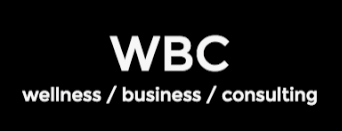I wrote this article for Forbes, originally published here.
As a small business, getting the press coverage you need to support your company's growth can be frustrating and challenging — especially if you've put out press releases or emailed your favorite publications and heard nothing but radio silence in return. I have found a ton of success in getting press using the following method, which entrepreneurs can utilize to bypass all the noise and get straight to the source.
First, find your angle and what you'd like to talk about. Maybe it's a current event or trend, or something you've noticed about your customers or clients, or an observation about a shift or change in your industry. It could also be common mistakes people make when choosing your service or product, things people may not know about your field or a behind-the-scenes look at the day-to-day of your kind of business. The point of press is to bring traffic to your website, establish yourself as a professional in your industry and give you credibility with your customers. Plus, it provides you with something tangible to share on social media that clients can engage with and be excited about. To be written about, or even just to be quoted in an article, is a win-win all around.
But here's something not everyone knows: Reaching out to magazines directly can be a total waste of time.
Chances are, the people reading your emails to websites or magazines don't know — or perhaps don't care — who you are or what you do. Instead, seek out the writers who have written articles about the topic you're discussing, specifically in the publications or sites that interest you. Contacting writers is the key here because they always need sources and pitches, and they already have sold this topic or concept to the magazine or site before. You can find individual writers by searching for the topic by publication, in the News section of Google. This increases your chances of identifying a writer with a connection to the site or publication.
For example, if I want to establish myself online as a professional by being quoted in a particular newspaper, I might research who's written for that paper on a topic similar to the one I'd like to comment on. You might think that is redundant, but it's actually helpful to reach out regarding something similar because the writer has experience pitching or selling that type of story to their publisher. For massage therapists like me, these search terms might look like, "back pain, anxiety, [newspaper name]." For a gym owner, it could look like a recent fitness trend to comment on in a health magazine. A chiropractor might look for "weight lifting injuries" in the Times. A psychologist might search for who's written about stress or PTSD recently for an industry journal.
After you've identified a writer who has written for the desired publication or site within the last six months, reach out to them directly. Most journalists have a website, a Twitter account or other online presence with a contact form or public email address for tips. When you email them, be sure to mention that you enjoyed a recent article of theirs and that you've noticed this trend in your clients/this industry shift/this mistake people make, etc. Reference the topic that interests you that you'd like to discuss, and be brief and to the point. Your reach-out email should not be longer than four or five sentences. Authenticity is important — try not to be "salesy," as this is a very soft pitch. You don't need to write the article for them. Your goal is to offer your idea and ask if they are interested in researching it further.
If the writer is interested, they may respond to you with lots of questions. It will be helpful to also provide your new contact with other industry leaders they could interview as well. Reach out to different writers at several publications on the same or a similar topic until one bites. Make sure your email includes your name, contact info and website in the signature line, so that the writer can link to you or get in touch for follow-ups. Don't be discouraged if you don't hear back right away; it's a numbers game.
I have successfully used this method to get quotes published — and in turn, generate interest for my business — in various mainstream magazines and newspapers. It truly pays off when you become the go-to person for insider insights about your industry.

